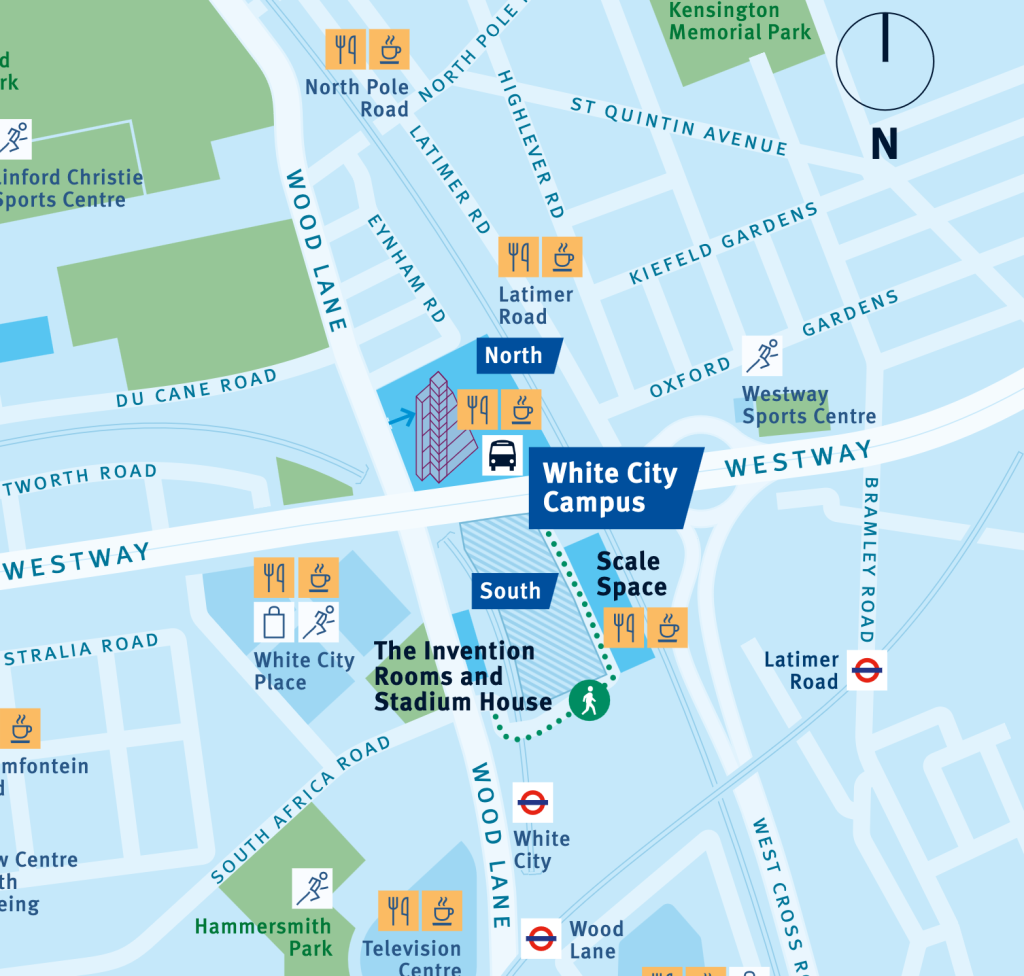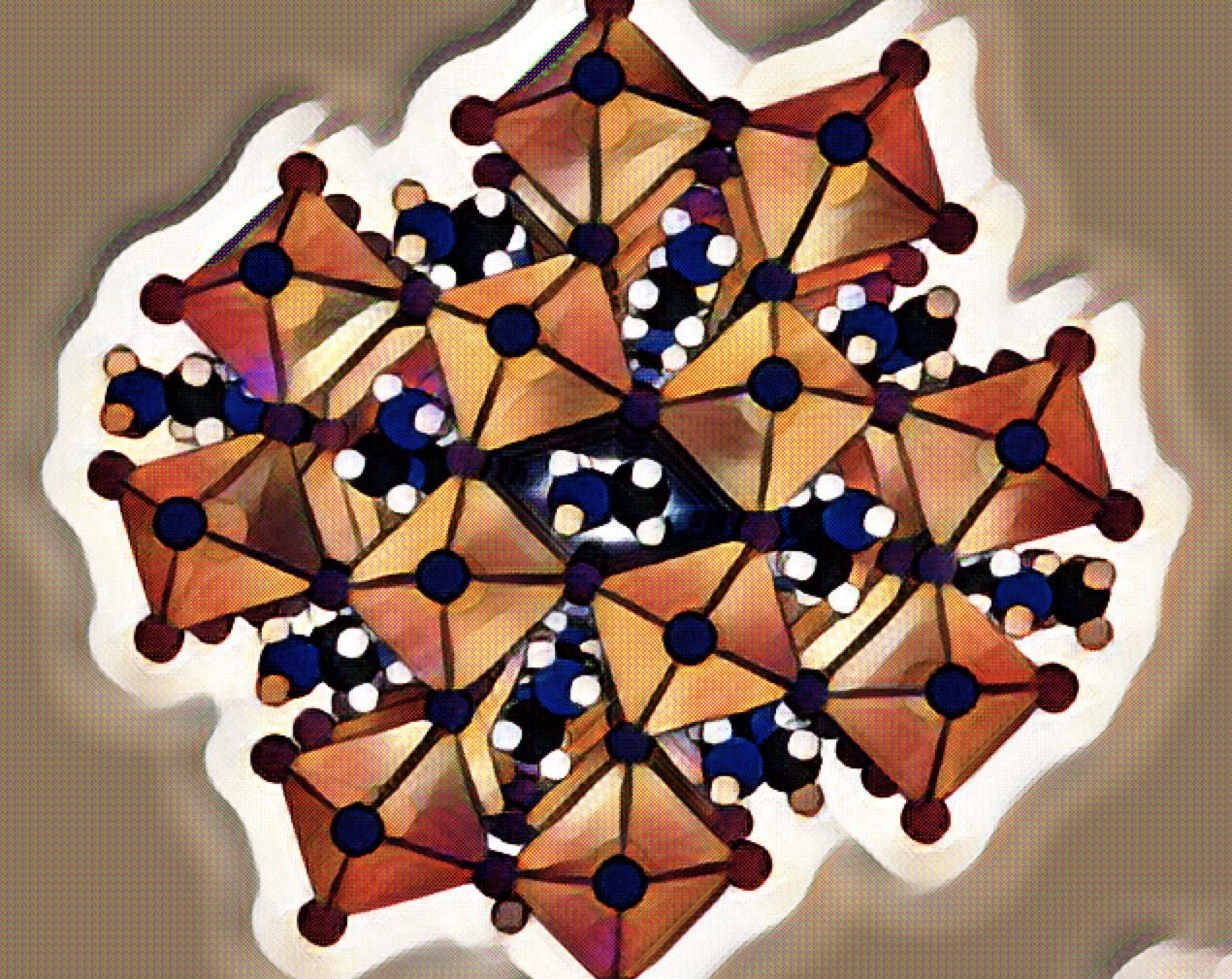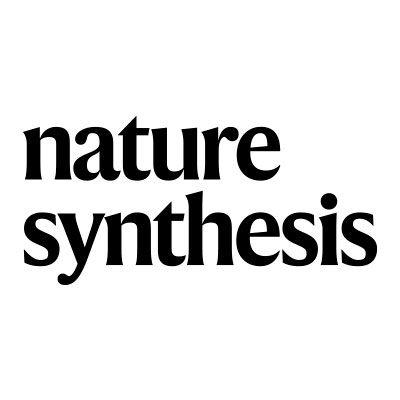
- This event has passed.
TYC 7th Energy Materials workshop: from data to discovery of new energy materials
24 July 2024 @ 1:30 am – 26 July 2024 @ 12:30 pm
Venue: Molecular Sciences Research Hub (MSRH) in lecture theatre B10, Imperial College London, White City Campus:
https://maps.app.goo.gl/5nQGfKXMzuA5vLtH8 (other maps can be found at the bottom of this page)
Materials are pivotal to solving the grand challenges that face humanity in the 2020s and beyond, for example the transition to renewable energy and a more sustainable economy. Often a new material with radically new or improved properties will unlock a new application or make an existing application suddenly economically or technologically viable.
A major challenge, however, is the enormous size of the chemical composition space of materials, which quickly explodes with the number of elements for solid-state materials or the size of molecules for molecular materials. This makes it extremely hard to explore the chemical space of materials properly with experiment and theory alike, meaning that only a small fraction of all potentially realizable materials have been studied. The recent dramatic advances in robotic synthesis and characterisation platforms address this issue from an experimental perspective, while on the theory front machine learning and material informatics methods have been developed to accelerate screening. Both theoretical and experimental advances are now being integrated in terms of self-driving labs and automated discovery.
In this workshop we will bring together the theoretical and experimental community to discuss how we can accelerate material discovery for energy applications, e.g. new semiconductors for solar cells or light emitting diodes or new materials that intercalate ions for batteries, and importantly how we can do so by integrating robotic experiment and computational prediction and by making optimal use of the data generated. In contrast to other meetings which often discuss either theoretical or experimental advances in this field, our focus on how theory and experiment can be integrated in an optimal way makes this meeting unique, as well as our focus on materials that will be practically relevant for energy generation, conversion and storage rather than materials in the abstract.
Programme
Wednesday afternoon (July 24): Automation and acceleration
1:30pm: Registration open
1:50pm: Welcome
2.00pm: Matthew Rosseinsky (Liverpool): Discovery synthesis of inorganic functional materials in the digital age
2.30pm: Volker Deringer (Oxford): Machine-learning-driven advances in modelling battery materials on the atomic scale
3.00pm: Coffee break
3.30pm: Becky Greenaway (Imperial): High-Throughput Approaches for the Discovery of Organic Materials
4.00pm: Robert Palgrave (UCL): Challenges in high-throughput inorganic material prediction and autonomous synthesis
4.30pm: Shubham Vishnoi (Limerick): High-throughput Computational Screening of Sustainable, Eco-friendly Crystal Piezoelectrics
4.45pm: Anthony Onwuli (Imperial): Expanding materials embeddings for more expressive machine learning models
5.00pm: Discussion (led by Aron Walsh)
5.30pm: Poster session
Thursday morning (July 25): From atoms to devices
9.30am: Pascal Friederich (KIT): Machine Learning for Simulation, Understanding, and Design of Molecules and Materials
10.00am: Hanna Tuerk (EPFL): Unlocking the Potential of Lithium Thiophosphate: Searching Chemical Moieties that Determine Surface Reactivity
10.15am: Simao Joao (Imperial): Computational nanoparticle screening for efficient plasmo-catalysis
10.30am: Coffee break
11.00am: Alexander Bagger (DTU): Data-driven symbiosis between computations & experiments for electrochemical reactions
11:30am: Juliana Morbec (Keele): Designing organic/2D heterostructures for photovoltaic applications
11.45am: Olivier Henrotte (Munich): Energizing materials with sunlight
12:15pm: Discussion (led by Martijn Zwijnenburg)
12.45pm: Lunch
Thursday afternoon: Data for large-scale facilities and benchmarks
2.00pm: Jeremy Frey (STFC): The Physical Sciences Data Infrastructure (PSDI)
2.30pm: Tom Penfold (Newcastle): Deep Neural Networks for X-ray Spectroscopy: Hero or Zero?
3.00pm: Jose Recatala Gomez (NTU): Accelerated solid-state synthesis of functional inorganic materials
3.15pm: Coffee
3.45pm: Alex Ganose (Imperial): Computational materials discovery in the age of automation
4.15pm: Mahika Luthra (Aarhus): Screening of Oxide Catalysts using Machine Learning Foundation Models
4.30pm: Jaqui Cole (Cambridge): Data platforms for materials scientists
5.00pm: Discussion (led by Keith Butler)
Friday morning (July 26): From force fields to generative models
9.30am: Seungwu Han (Seoul): Application of pretrained machine learning force fields to energy materials
10.00am: Venkat Kapil (UCL): Towards full quantum first-principles simulations via machine learning
10.15am: Federico Hernandez (Bristol): Quantum and machine learning photodynamics of solid-state materials for energy applications
10.30am: Coffee
11:00am: Tian Xie (Microsoft): MatterGen: a generative model for inorganic materials design
11.30am: Kedar Hippalgaonkar (NTU): Property-directed generative design and experimental validation of inorganic crystals
12.00pm: Discussion (led by Clotilde Cucinotta)
12.30pm: End of Conference

Generously sponsored by the Ada Lovelace Centre, APL Machine Learning, CCP9, CECAM JC Maxwell, the Henry Royce Institute, Psi-k, Nature Synthesis, Digital Discovery, and STFC
Register for the workshop here:
If you are attempting to register from a Medical, Educational or Governmental Institution whether working onsite, or remotely from home, a Firewall may prevent you from making the booking. You will therefore need to use another Internet connection. You should also use either a Laptop or PC to make the booking, and not i-Phone or tablet, and either Firefox or Microsoft’s the Edge rather than Google Chrome.
We may be able to provide some financial assistance for delegates who experience financial strain by registering for this workshop. Please send an email to the organising committee at tyc-administrator@ucl.ac.uk justifying your reason for applying for support to attend the meeting.
Map of White City and closest stations:

Link to the White City Campus map:
https://www.imperial.ac.uk/media/imperial-college/visit/public/WhiteCityCampus.pdf
Suggested hotels:
Holiday Inn London – West (20 minutes on the Central line, including 15-minute walk)
Travelodge London Acton hotel (19 minutes on the Central Line, including 15-minute walk)
Novotel London West (29 minutes by bus, including 7-minute walk)
Contact:
Johannes Lischner
j.lischner@imperial.ac.uk
Organisers:
Keith Butler – University College London
Clotilde Cucinotta – Imperial College London
Johannes Lischner – Imperial College London
Alin Marin Elena – Science & Technology Facilities Council (STFC)
Alex Shluger – University College London
Karen Stoneham – University College London
Aron Walsh – Imperial College London
Martijn Zwijnenburg – University College London
By registering for this conference, you agree to our code of conduct for the event.
Code of Conduct
We value the participation of every member of the materials and molecular modelling community and want to ensure that everyone has an enjoyable and fulfilling experience, both professionally and personally. Accordingly, all participants of the 7th Energy Materials Workshop are expected to always show respect and courtesy to others. The TYC and its partners strive to maintain inclusivity in all of our activities. All participants (staff and students) are entitled to a harassment-free experience, regardless of gender identity and expression, sexual orientation, disability, physical appearance, body size, race, age, and/or religion. Harassment in any form is not acceptable for any of us. We respectfully ask all attendees of the 7th Energy Workshop to kindly conform to the following Code of Conduct:
- Treat all individuals with courtesy and respect.
- Be kind to others and do not insult or put down other members.
- Behave professionally. Remember that harassment and sexist, racist, or exclusionary jokes are not appropriate.
- Harassment includes, but is not limited to, offensive verbal comments related to gender, sexual orientation, disability, physical appearance, body size, race, religion, sexual images in public spaces, deliberate intimidation, stalking, following, harassing photography or recording, sustained disruption of discussions, and unwelcome sexual attention.
- Participants asked to stop any harassing behaviour are expected to comply immediately.
- Contribute to communications with a constructive, positive approach.
- Be mindful of talking over others during presentations and discussion and be willing to hear out the ideas of others.
- All communication should be appropriate for a professional audience, and be considerate of people from different cultural backgrounds. Sexual language and imagery are not appropriate at any time.
- Challenge behaviour, action and words that do not support the promotion of equality and diversity.
- Arrive at the conference events punctually where possible.
- Show consideration for the welfare of your friends and peers and, if appropriate, provide advice on seeking help.
- Seek help for yourself when you need it.
Your data
Thank you for your interest in attending this workshop. Any information collected from you will be used to help us to organise the event, and to contact you with details relevant to the event only.



